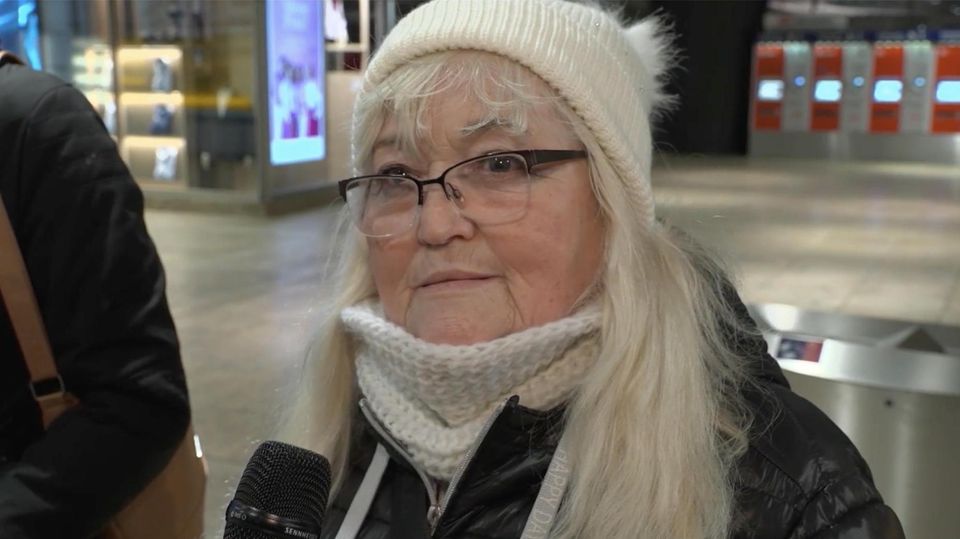Rail strike averted
GDL and Bahn settle tariff dispute – compromise still unknown
Rail customers can be happy that there is no longer any rail strike in sight
© Julian Stratenschulte / DPA
According to the train drivers’ union, GDL and Bahn have reached an agreement in their collective bargaining dispute. What the solution looks like will not be announced until Tuesday.
After more than four months, the tariff dispute at Deutsche Bahn has ended. Like the German Locomotive Drivers Union (GDL) announced on Monday evening that a collective agreement was reached with the railway. A railway spokesman in Berlin confirmed the agreement upon request. Both sides want to provide information about the details in separate press conferences in Berlin on Tuesday morning. Train passengers are no longer threatened with strikes.
Both sides had agreed to remain silent until the collective negotiations were concluded. Both the railways and GDL boss Claus Weselsky had recently expressed confidence that an early solution to the conflict would be reached.
The transport policy spokeswoman for the SPD parliamentary group, Isabel Cademartori, welcomed the agreement. “It is an important signal of safety and reliability for the millions of commuters and the travelers expected over the Easter holidays. The agreement is a win for the rail system, which will face major challenges in the next few months.”
Compromise between railways and GDL still unknown
What the compromise between the railways and GDL looks like remained unclear at first. The crux of the collective bargaining round from the start was the GDL’s demand for a reduction in weekly working hours for shift workers from 38 to 35 hours while keeping wages and salaries the same. At a previous round of talks, the railway was prepared to agree to 36 hours with full wage compensation in two steps until 2028. However, the union under its chairman Claus Weselsky rejected this. Two more strikes followed with significant restrictions on passenger traffic. About a week ago, the railways and the GDL announced that they were talking to each other again – behind closed doors.
Tariff conflict
Means with (side) effects: the successes of the GDL strikes in the past
It remained unclear on Monday whether the railway had now completely given in to the working hours. The term of a future collective agreement was also controversial. In addition, the GDL originally demanded 555 euros more per month as well as a tax- and duty-free inflation compensation bonus of 3,000 euros.
Collective bargaining conflict since the beginning of November
The union also wanted to negotiate for infrastructure employees, for whom there are currently no GDL collective agreements. The compromise proposal from the mediators in February envisaged a gradual increase in wages and salaries by 410 euros. There should be 200 euros more on August 1st of this year, 210 more euros on April 1st, 2025. The term of the contract would have been 30 months.
The collective bargaining dispute began at the beginning of November. After the second round of negotiations, Weselsky declared the talks had failed and initiated a strike vote on indefinite strikes in December. Industrial disputes broke out in collective bargaining disputes a total of six times. Two shorter warning strikes were followed by two strikes lasting several days in January.

Announce rail strikes at short notice
After negotiations failed again in February, Weselsky tightened the measures: In the future, the labor disputes should be announced at much shorter notice, so that the railway and passengers have less time to adjust to them. A strike followed the familiar pattern with 48 hours’ notice. Just a few days later, there were only 30 hours between the announcement and the start of the next strike on passenger transport. The railway again failed to legally stop the work stoppages at the Frankfurt Labor Court and the Hessian State Labor Court. With the agreement, further labor disputes are off the table for the duration of the contract.
Note: This article has been updated several times.

